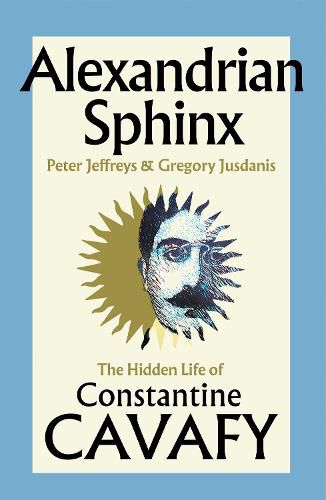Readings Newsletter
Become a Readings Member to make your shopping experience even easier.
Sign in or sign up for free!
You’re not far away from qualifying for FREE standard shipping within Australia
You’ve qualified for FREE standard shipping within Australia
The cart is loading…






A gripping and revealing new biography of one of the greatest of modern poets, the queer, Greek-Egyptian Constantine Cavafy, whose admirers have ranged from E.M. Forster, T.S. Eliot and Virginia Woolf to Jackie Onassis, Leonard Cohen and Stephen Fry.
In this illuminating book, Peter Jeffreys and Gregory Jusdanis reveal Cavafy as a troubled, brilliant poet who sacrificed love for his art and changed the course of world poetry. Alexandrian Sphinx chronicles the extraordinary story of his family, the vicissitudes of their fortunes, and their eventual poverty when they left Egypt and moved to Liverpool, London and Istanbul. As the poet reached adulthood, his story centred on his beloved Alexandria, the city that nourished his imagination and became for him a metaphor of both his poetry and modern life. Deep archival research uncovers the poet’s relationships with his teenage companions, his friends of middle age, and the individuals whom in later life he enlisted in his steadfast pursuit of fame.
Alexandrian Sphinx tells not only of Cavafy’s life but of his work and his artistic journey, from his early poetic experiments to his startling reinvention in middle age, when he renounced much of what he had written and developed a radical new poetics. Erotic, philosophical, and linguistically suggestive, this widely imitated yet singular style is now recognized and revered as Cavafian.
$9.00 standard shipping within Australia
FREE standard shipping within Australia for orders over $100.00
Express & International shipping calculated at checkout
Stock availability can be subject to change without notice. We recommend calling the shop or contacting our online team to check availability of low stock items. Please see our Shopping Online page for more details.
A gripping and revealing new biography of one of the greatest of modern poets, the queer, Greek-Egyptian Constantine Cavafy, whose admirers have ranged from E.M. Forster, T.S. Eliot and Virginia Woolf to Jackie Onassis, Leonard Cohen and Stephen Fry.
In this illuminating book, Peter Jeffreys and Gregory Jusdanis reveal Cavafy as a troubled, brilliant poet who sacrificed love for his art and changed the course of world poetry. Alexandrian Sphinx chronicles the extraordinary story of his family, the vicissitudes of their fortunes, and their eventual poverty when they left Egypt and moved to Liverpool, London and Istanbul. As the poet reached adulthood, his story centred on his beloved Alexandria, the city that nourished his imagination and became for him a metaphor of both his poetry and modern life. Deep archival research uncovers the poet’s relationships with his teenage companions, his friends of middle age, and the individuals whom in later life he enlisted in his steadfast pursuit of fame.
Alexandrian Sphinx tells not only of Cavafy’s life but of his work and his artistic journey, from his early poetic experiments to his startling reinvention in middle age, when he renounced much of what he had written and developed a radical new poetics. Erotic, philosophical, and linguistically suggestive, this widely imitated yet singular style is now recognized and revered as Cavafian.